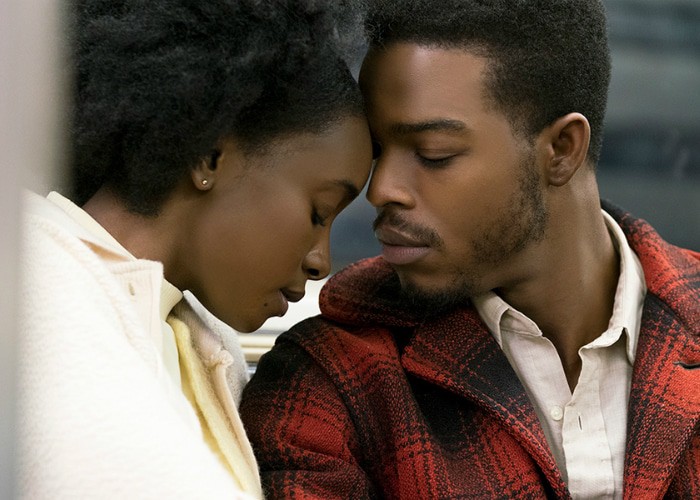How do you follow-up a masterpiece like Moonlight? You make another one. Barry Jenkins wrote the screenplay for If Beale Street Could Talk during the same period as Moonlight. It adapts the James Baldwin novel about love, wrongful imprisonment, and family, and in some ways Beale Street is a companion piece to his first film. Per his own intentions, while Moonlight was his experience growing up Beale Street shows the family he wishes he had.
Shared experiences have the power to bring people together. 19-year-old Tish (Kiki Layne) has known 22-year-old Alfonso ‘Fonny’ Hunt (Stephan James) for most of her life. They grew up together, and she has always considered him as her most trusted confidant. What starts in friendship turns towards love as she realizes that Fonny is the most beautiful person she has ever laid her eyes on and that the feeling is mutual.
The relationship runs into the most troubling obstacle imaginable. Fonny has been wrongly accused of raping and assaulting a woman. It’s not soon after that Tish has discovered that she is pregnant with Fonny’s child, and the sacrifice needed to get an accused black man out of prison takes its toll on Tish, her family, and Fonny’s father. Not only is there a monetary dilemma, but there’s also the issue of pride. Beale Street shows the different love that exists in our lives, not solely the love between a man and a woman, but how families will come together in the most difficult of times.
Baldwin’s novel was written in the early 1970s and not much has changed in the systematic incarceration of black men and women. Fear and propaganda are spewed out from the highest office in America, and for that reason Beale Street couldn’t be more timely than it is in this moment. There is a push from all levels of government to get minorities behind bars, stripping them of their rights and comforts, and making their lives no better than they were a century ago. Jenkins takes much of the dialog from the novel and keeps the film as a period piece, but Beale Street could have been set today and still feel like a sadly current injustice.
The emotion from Beale Street might ring hollow were it not for the efforts from the cast. Layne captures the essence of Tish’s character — virtuous and dainty as she navigates through her feelings of hopelessness and devotion. One line that struck me was when she mentions her hopes that no one should have to see their loved one through glass. It is no easy journey raising a child alone, something that would be a real possibility if Fonny isn’t released. Another one of the great performances comes from Regina King, who plays Tish’s mother. King’s character has all the qualities of a loving mother as she’s not afraid to stick up for her child or offer compassion when things are dire. In a pivotal sequence late in the film, King bears her soul for her child in the only way she knows how.
No one in Hollywood is capturing the black experience like Barry Jenkins, and there’s a loving quality that permeates his pictures. Sequences of Beale Street pop off the screen with vibrant yellows and reds,costume designer Caroline Eselin has found clothing that that fits this time period perfectly, and working again with cinematographer James Laxton, Jenkins continues to make stunning images. He has long implied he is a fan of the pictures from director Wong Kar-wai and it shows in how he frames faces and moments. Just like in Moonlight, Jenkins uses portraits to highlight subtle emotions. In one scene, he shows the alternating faces of a young couple in love. In another, Jenkins follows the sculpting work of Fonny as he circles his creation with a cloud of cigarette smoke filtrating the air. It gives a weight to these moments that makes them all the more significant.
Barry Jenkins had the difficult task of creating a follow-up to a film that has no equals. With his latest effort, Jenkins shows he is a talent beyond reproach and one of the most exciting directors creating motion pictures today. He is telling stories that have long been neglected, providing grace and passion to topics such as wrongful incarceration, something that has never been as topical as it is in our world today. The only way to match a masterpiece is to create another one. Barry Jenkins has met those expectations and then some, and If Beale Street Could Talk is one of the most affecting pictures of the year.

